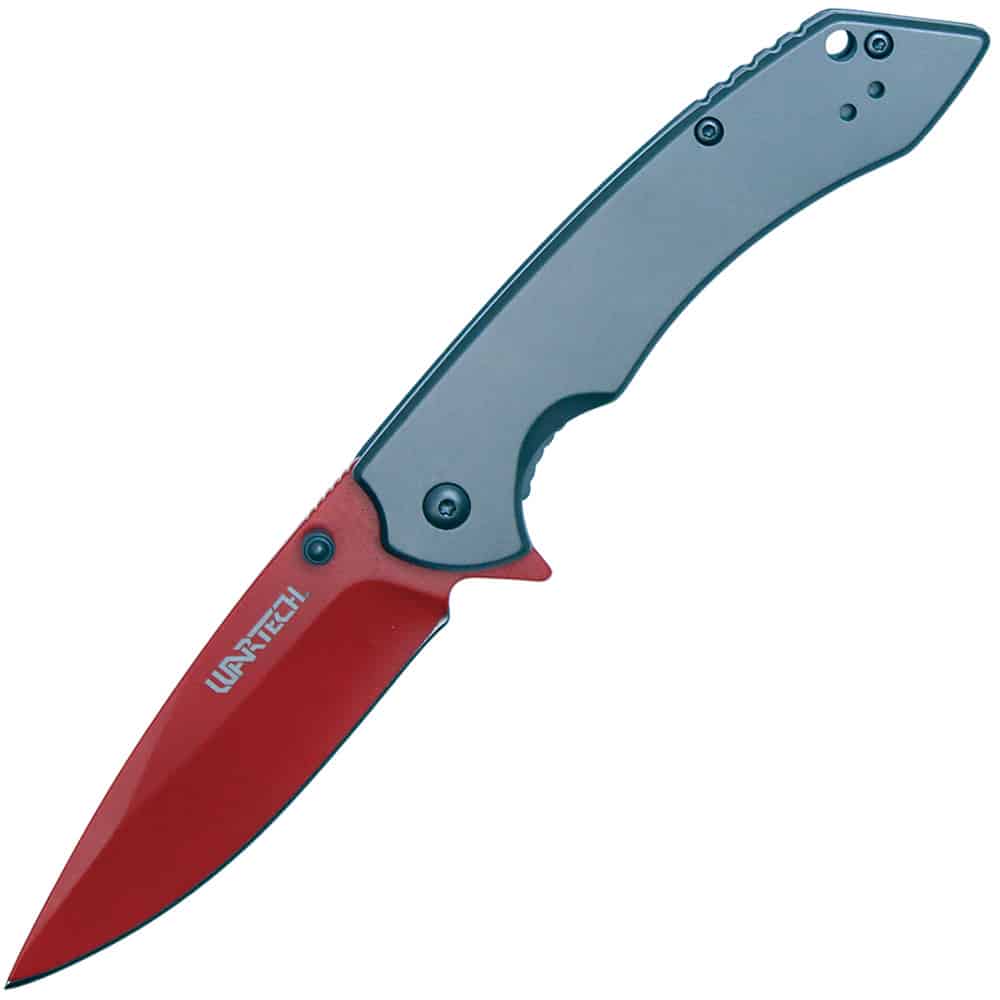Proper Training Is A Must
Are knives good for self defense? Just as David faced Goliath with nothing but a sling, you might be contemplating the use of a knife for self-defense in a world that often feels filled with giants. Knives offer a combination of affordability, practicality, and ease of concealment, making them appear as a viable option for personal safety.
However, without proper training, carrying a knife can be as dangerous to you as it is to any potential attacker. Additionally, considering the legal implications of knife carrying requires careful consideration. This brings up the query: are knives truly a wise choice for self-defense? Let’s explore this further, taking into account both the potential benefits and the inherent risks.
Key Takeaways
- Knives are affordable and practical self-defense tools, requiring no ongoing expenses like ammunition.
- Proper training is essential to maximize a knife’s self-defense potential effectively.
- Carrying a knife for self-defense introduces risks of accidental injuries and legal complications.
- Understanding and adhering to local laws is crucial to avoid legal repercussions when carrying a knife.
- Non-weapon alternatives and de-escalation strategies can often provide safer self-defense options.
Potential Benefits of Knives
Knives, with their versatility and affordability, offer effective self-defense capabilities that you shouldn’t overlook. These tools aren’t only budget-friendly but also accessible, making them a practical choice for enhancing your personal safety. Unlike other self-defense options, knives don’t require ongoing expenses like ammunition or hefty training fees, making them a cost-effective solution. Plus, they’re lightweight and easy to carry, allowing for discreet concealment in your daily life. Whether you opt for a pocket knife or a more specialized blade, the key to maximizing a knife’s potential lies in proper training and a solid understanding of legal regulations.
Carrying a knife for self-defense introduces a versatile tool into your personal safety arsenal. With the right training, you can learn to wield your knife effectively, turning it into an extension of your body’s natural defense mechanisms. However, it’s important to familiarize yourself with the legal regulations surrounding knife carry in your area to make sure you’re within your rights. Opting for a concealed carry approach not only keeps your knife discreet but also ensures you’re prepared for unforeseen situations, making a knife a reliable companion in the realm of self-defense.
Common Safety Risks
While carrying a knife offers a sense of security, it’s essential to understand the safety risks involved, including the potential for accidental injuries. Knives, with their sharp edges, can easily cause harm, not just to an attacker but to yourself as well. Improper handling, especially without self-defense training, increases your risk of self-inflicted wounds. It’s also worth noting that in the heat of the moment, high-pressure scenarios can lead to unintentional harm. This isn’t just about physical risks; the emotional stress of a confrontational situation can cloud your judgment, making a knife more of a liability than an asset.
Moreover, the defensive use of a knife isn’t always socially acceptable or legal. Blade length limits and state and local laws can turn your means of protection into a legal nightmare. Without a clear understanding of these regulations, you might find yourself facing legal consequences that far outweigh any perceived security a knife might provide. Remember, while a knife can be a tool for self-defense, it carries with it a responsibility to be used wisely and within the confines of the law. Ensuring you’re well-trained and knowledgeable about your local laws is vital to minimizing risks and maximizing safety.
Legal Implications
Understanding the legal landscape surrounding self-defense knives requires a thorough understanding of local laws to avoid severe consequences. When you consider using a knife as your self-defense tool, you’re stepping into a complex area filled with legal implications. It’s crucial to know that in many places, wielding a knife in a self-defense situation is seen as using lethal force, which can carry hefty legal consequences.
Laws regarding self-defense tools like knives aren’t uniform. They can vary widely, meaning you’ve got to do your homework on the legal regulations in your area. Simply possessing a knife with the intent for self-defense involves maneuvering through a maze of legal frameworks that could lead to potential repercussions if not properly understood.
The decision to use a knife for self-defense should never be taken lightly. Beyond the immediate danger, the aftermath involves a careful consideration of the legal implications. Remember, self-defense involves not just protecting your physical well-being but also safeguarding against legal fallout. So, before you decide to carry a knife as a self-defense tool, make sure you’re fully aware of the laws regarding its use and the possible consequences of having to use it.
For more information, click here to view state knife laws. On the map of the United States that appears, just click on the state you want to look up. Or use the drop down menu t…On the map of the United States that appears, just click on the state you want to look up. Or use the drop down menu to select a particular state.
Types of Knives Available To You

At Nittany Self Defense we carry a wide selection of high quality knives, including Butterfly Knives, Disguised Knives and Assisted-Open Knives. The Wartech assisted-open pocket knife comes with a very neat-looking colored blade including red (pictured above), green, orange and purple.
Carrying Considerations
After considering the legal implications of self-defense knives, it’s also important to think about how you’ll carry one safely and effectively. Folding pocket knives stand out as an ideal choice for self-defense, thanks to their versatility, accessibility, and budget-friendly price. These knives aren’t just practical; they’re discreet, allowing you to blend into your daily environment without drawing unnecessary attention.
Understanding the legal regulations surrounding carrying knives is vital. You don’t want to find yourself on the wrong side of the law for simply trying to protect yourself. Additionally, investing in professional training can make a world of difference. It’s not just about having a knife; it’s knowing how to use it effectively and safely in a threatening situation.
Remember, the key to carrying a knife for self-defense lies in concealability. A knife that’s easily hidden yet accessible in times of need provides a significant advantage. However, this physical preparedness must be matched with mental preparation. Anticipating potential threats and knowing your response ahead of time can boost your confidence and deterrence power.
In essence, carrying a knife for self-defense encompasses more than just the physical act. It’s a combination of legal awareness, professional training, mental readiness, and choosing the right tool for the job.
Non-Weapon Alternatives
Exploring non-weapon alternatives can greatly enhance your safety without the need to carry a knife or other weapons. Traveling in groups and sticking to well-lit areas are simple yet effective steps you can take to boost your personal safety. These actions make you less of a target and increase the likelihood of assistance if you find yourself in a precarious situation.
Diving into basic self-defense classes empowers you with the skills to protect yourself without relying on weapons. Coupled with personal alarms and safety apps, you’re better equipped to handle risky situations. Being aware of your surroundings is vital; it’s your first line of defense. Knowing who’s around you and what’s out of place can keep you out of harm’s way.
Non-lethal options, such as pepper spray, offer a means to defend yourself while avoiding the legal and moral complications that can arise from using a knife. Additionally, mastering de-escalation strategies can diffuse a tense situation before it escalates into violence. Remember, the best fight is the one avoided.
Staying alert, informed, and prepared with these non-weapon alternatives keeps you safe and confident in your ability to handle dangerous situations without resorting to carrying a knife.
Frequently Asked Questions
How Effective Is a Knife for Self Defence?
You’re wondering how effective a knife is for self-defense. It hinges on knife training, understanding legal implications, and the psychological impact. Consider weapon accessibility, close combat effectiveness, escalation risks, self-defense laws, alternative methods, physical fitness, and attack scenarios.
Is It Okay to Carry a Knife for Self-Defense?
You’re considering carrying a knife for self-defense. It’s crucial to weigh legal implications, understand concealed carry laws, assess risks, and consider the psychological impact. Training’s a must, as is exploring alternative methods and maintaining situational awareness.
Is It Okay to Defend Yourself With a Knife?
Defending yourself with a knife opens a Pandora’s box of legal implications, training necessity, and ethical considerations. It demands situational awareness, understanding injury risks, and considering alternatives before diving into close quarters combat or attack escalation.
Is a Knife or Gun Better for Self-Defense?
Deciding whether a knife or gun is better for self-defense, consider legal regulations, training requirements, and psychological impact. Factor in concealability, accessibility, maintenance, range, skill levels, cost, and ethical considerations to make your choice.
Conclusion
To conclude, while knives offer a cost-effective and concealable option for self-defense, they’re not without their pitfalls. Proper training‘s key to wielding them safely, and you’ll need to navigate the legal maze of carrying one.
Remember, it’s not just about having a tool; it’s about knowing how to use it effectively and responsibly. Alternatives exist, so weigh your options carefully.
After all, the best defense is a well-thought-out plan, not just a sharp edge in your pocket.


